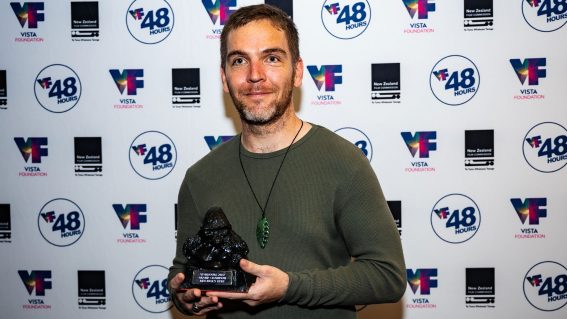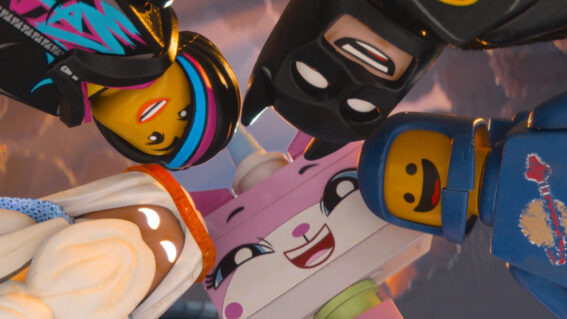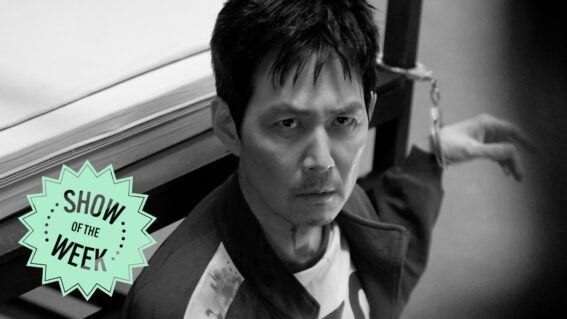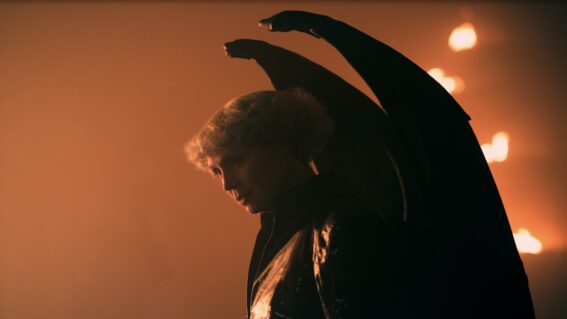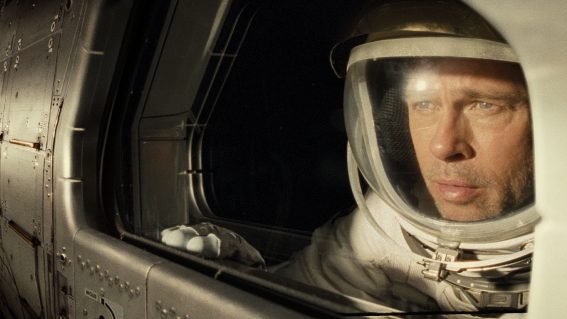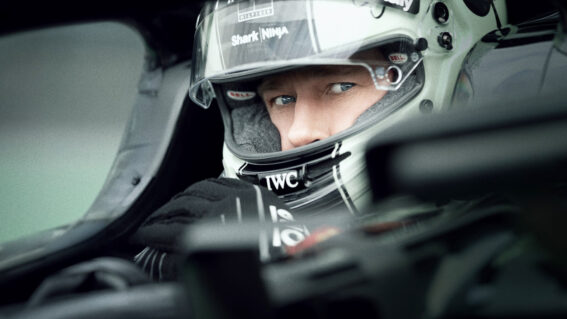Damn the haters: Copenhagen Cowboy is a work of savage, seductive strangeness
Television needs Nicolas Winding Refn. Or maybe Nicolas Winding Refn needs television.

We’re all drowning in content—so it’s time to highlight the best. In her column, published every Friday, critic Clarisse Loughrey recommends a new show to watch. This week: Nicolas Winding Refn’s hyper stylized series Copenhagen Cowboy.
Television needs Nicolas Winding Refn. Or maybe Nicolas Winding Refn needs television. I’m not sure which way round it should be. The director’s dined off his divisiveness for years. First, he made Drive—a film of such immaculately posed cool that it immediately entered the cultural mainstream. He then proceeded to bite the hands that immortalised Ryan Gosling’s character as some pinnacle of idealised masculinity by turning the quiet, stoic protagonists of his follow-ups, Only God Forgives and Neon Demon, into an Oedipal wreck and young woman with a taste for flesh.
I love all three of those films—pretty much Refn’s entire oeuvre, if I’m honest. But I can recognise an artist’s need for a little creative refuge from the ruthless, lengthy cycles of the theatrical release. The interviews. The discourse. The box office. The prognostications. Prime Video’s Too Old to Die Young, his first series, was released to half the fanfare of Neon Demon.
Refn’s latest, Netflix’s Copenhagen Cowboy, has slipped onto the platform almost unnoticed. That might seem terrible for business, but the one advantage of streaming’s lackadaisical approach to marketing is that directors are now offered the unique opportunity to take a bucketload of money for the sole purpose of personal exploration. They can make art for no-one but themselves. And the executives writing the checks barely bat an eye.
The test, then, is whether someone can make such indulgences still feel vital and welcoming to an outside audience. And, while Copenhagen Cowboy is brutally uncompromising towards anyone who didn’t buy into his last two features, it’s still a work of such seductive strangeness that I can’t help but be thrilled. Damn the haters. This one’s for the faithful. The series sees Refn return to his native Denmark for the first time since 2005’s Pusher III, and centres around Miu (Angela Bundalovic), a supernatural, or perhaps even angelic being, who’s part Will Byers, part Renée Jeanne Falconetti’s Joan of Arc. She drifts through the country’s criminal underworld, invited into these spaces as a good luck charm who can incite pregnancy in post-menopausal women, cure migraines, and potentially reanimate the dead.
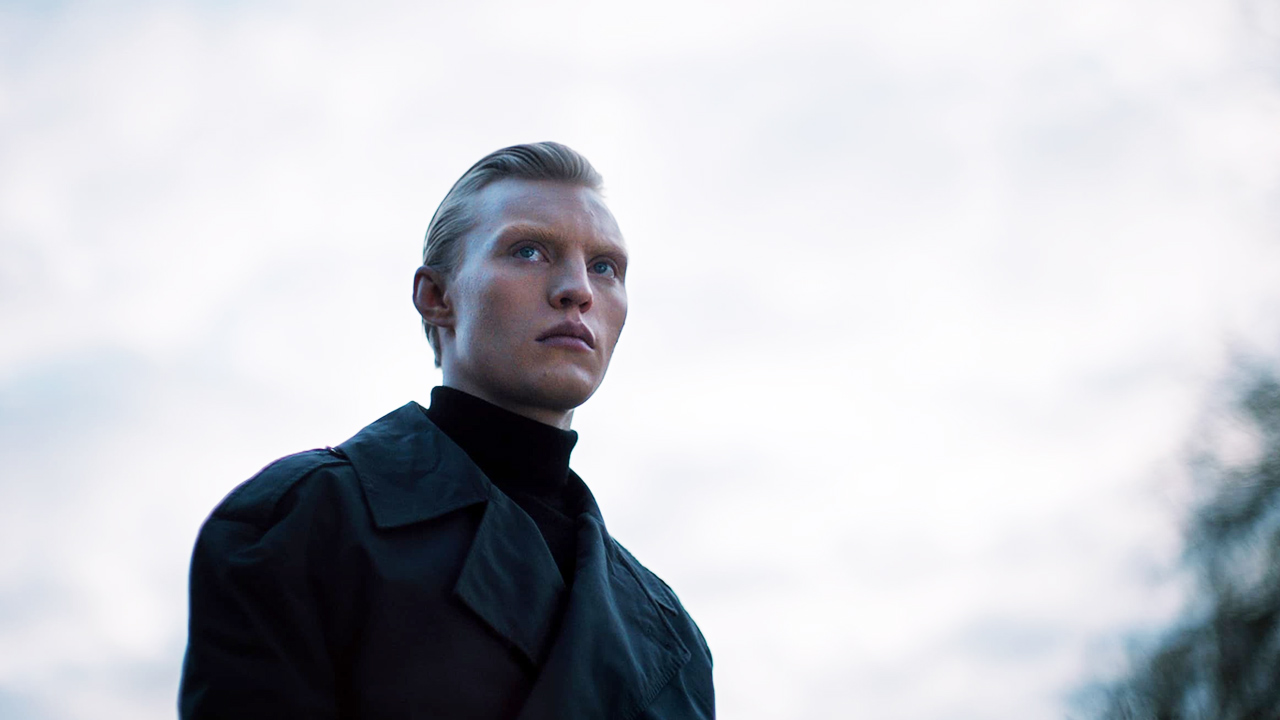
Showing an active disdain for traditional narrative, Refn now offers up his core vision as a fully realised landscape—a nightmarish purgatory that’s really just a blown-up photocopy of our own world. It’s the motivation behind even his most surreal flourishes: the husband who squeals like a pig, isolated shots of hands that act as vessels of corruption and terror, blues and pinks and reds that render the entire planet into a den of immorality and sexual exploitation. His enthusiastic (and, sure, some would argue excessive) use of 360 degree pans roots us firmly in these spaces. There’s no offstage, no emergency exit. The show’s score, blending work from several of his previous collaborators (Cliff Martinez, Peter Peter, Peter Kyed, and Julian Winding), plays like a dirge to innocence.
One of the reasons I’ve always stood by Refn’s work is that for all the high talk (“I’m the future,” he once said. “I’m the counter-culture. I’m commercial reality. I’m artistic singularity”) he’s astonishingly self-aware when it comes to his own limitations. When making Neon Demon, his first film with a female protagonist, he didn’t delude himself into thinking he could speak confidently on the female experience. So he turned to screenwriters Mary Laws and Polly Stenham, alongside cinematographer Natasha Braier.
Here, Refn’s collaborators include writers Sara Isabella Jønsson Vedde, Johanne Algren, and Mona Masri. And so, for all its heightened violence and brutal depiction of the patriarchy, Copenhagen Cowboy remains truthful to the nervous, but impulsive bonds that women form with each other for their mutual protection. Refn will make you do the work, to look past the pomp and the noise, but there’s a real delicate beauty at Copenhagen Cowboy’s heart. I just have to hope that enough people will be up to the task.









